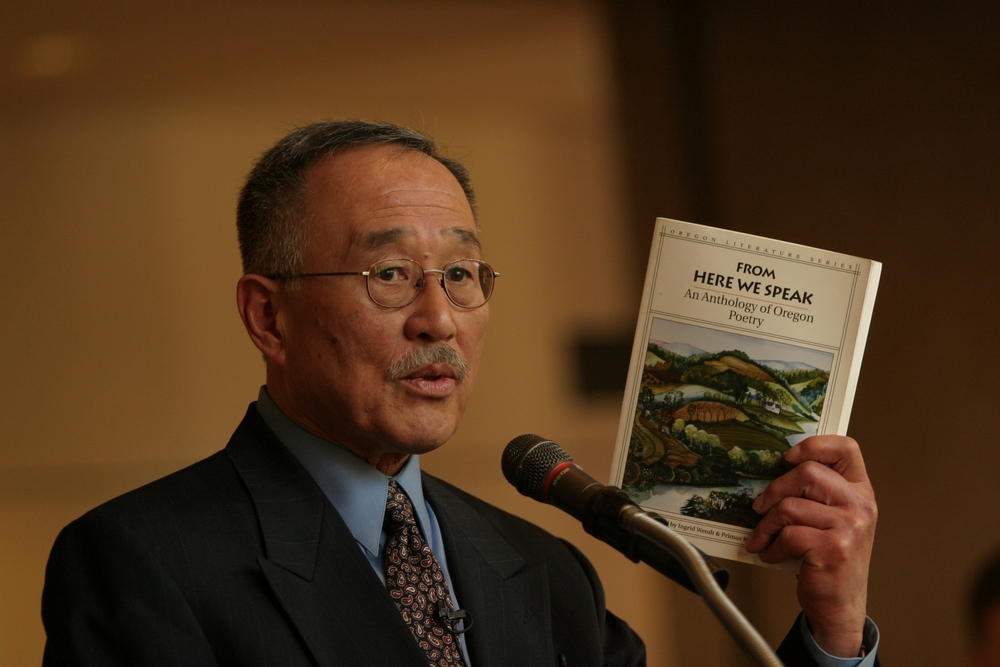Through both her creative and academic work, Gloria Bird helped establish a community of Native writers in Oregon and the Northwest. She is a founding member the Northwest Native American Writers’ Association.
Born in Washington’s Yakima Valley in 1951, Bird grew up on the Colville and Spokane Reservations and is an enrolled member of the Spokane Tribe. She attended the Institute of American Indian Arts in Santa Fe, New Mexico, while she was in high school and then enrolled in Portland Community College. Bird earned a bachelor’s degree in English from Lewis & Clark College in 1990 and a master’s degree in literature from the University of Arizona in 1992. For five years, she taught creative writing at the Institute of American Indian Arts and was a contributing editor for the Wicazo Sa Review.
In her essay “Autobiography as Spectacle: An Act of Liberation or the Illusion of Liberation?” Bird writes that her creative work “is motivated by a political agenda.” Her poetry, prose, literary criticism, and autobiographical essays often center on how the representations of Native peoples, by both themselves and others, can facilitate harmful stereotypes. She has argued, for example, that the portrayal of alcoholism in Indian communities is often exaggerated and that this can contribute to the problem instead of working against it. One of her main goals as a writer, she said, is “to interrogate damaging stereotypes” and to portray her community in a way that is accurate but not exploitative. She has emphasized that her writing records only one woman’s experience, not a collective Native identity.
Bird was a recipient of an Oregon Writer’s Grant from the Oregon Institute of Literary Arts in 1988. Her poetry collections include Full Moon on the Reservation (1993), which won the Diane Decorah First Book award; The River of History (1997); and Scattered Red Roots, an unpublished manuscript on the Nez Perce war. Her writing also appears in numerous anthologies, including First Fish First People: Salmon Tales of the North Pacific Rim (2003), Without Reservation: Indigenous Erotica (2003), and the Oregon Literature Series collection From Here We Speak (1993). She is the co-author, with Elizabeth Woody, of the introduction to Dancing on the Rim of the World (1990) and, with Joy Harjo, Reinventing the Enemy’s Language (1998), an anthology of Native American women writers.
Bird lives in Wellpinit, Washington, where she works for the Spokane Tribe and teaches at the Wellpinit campus of Salish-Kootenai College.
-
![]()
Full Moon On The Reservation book cover, 1993.
Courtesy Greenfield Review Press
Related Entries
-
![Literary Arts]()
Literary Arts
Literary Arts is a nonprofit arts organization with a mission to enrich…
-
![Oregon Literature Series]()
Oregon Literature Series
“The Oregon Literature Series is a national model,” wrote John Frohnmay…
Further Reading
Bird, Gloria. “Autobiography as Spectacle: An act of Liberation or the Illusion of Liberation?” In Here first: autobiographical essays by Native American writers, edited by Arnold Krupat and Brian Swann, 27-48. New York: Modern Library, 2000.
Bird, Gloria. “Breaking the Silence: Writing as 'Witness.'” In Speaking for the Generations: Native Writers on Writing. Edited by Simon J. Ortiz, 63-74. Tucson: University of Arizona Press, 1998.
Trafzer, Clifford. Blue Dawn, Red Earth: New Native American Storytellers. New York: Anchor Books, 1996.



